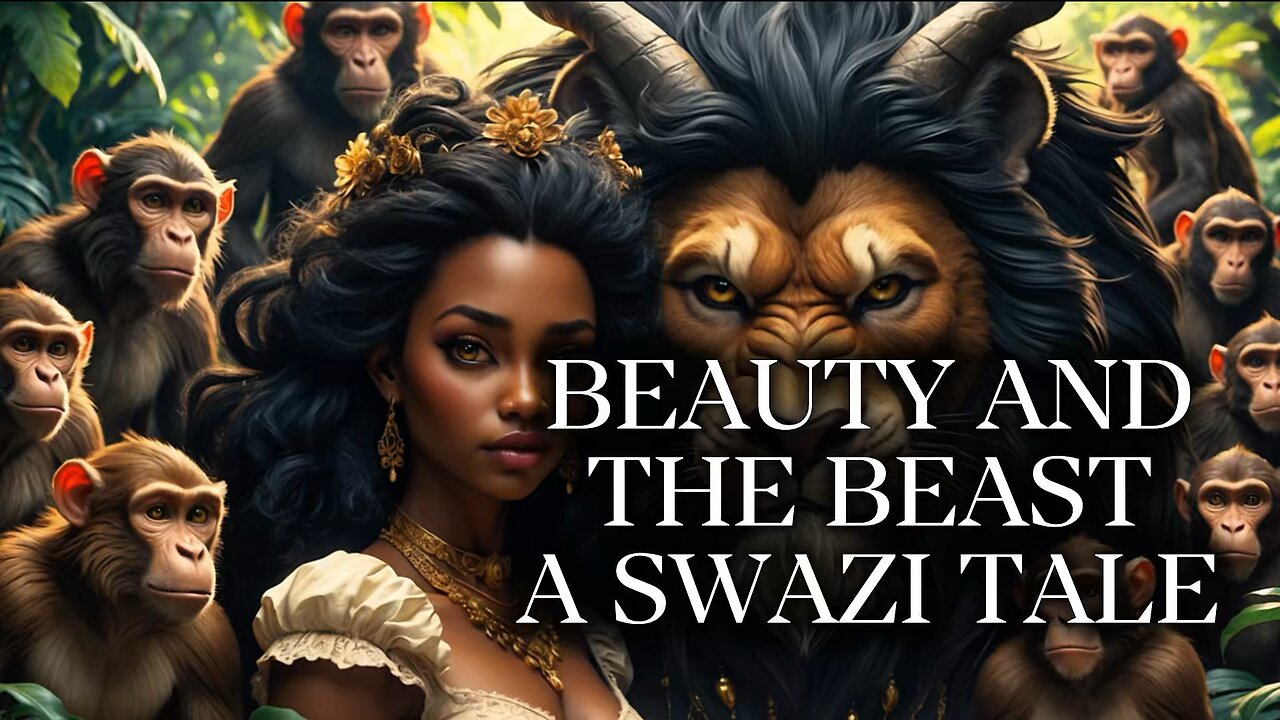Premium Only Content

Beauty and the beast, a Swazi tale
In a quiet kraal nestled deep in the Swazi countryside, there lived a maiden named Mulha, called the Fair One for her beauty that seemed touched by the dawn itself. While her mother worked the fields, Mulha tended her younger sisters, keeping the household in order. Yet solitude can tempt curiosity, and one day, temptation overcame her.
Her mother had warned them never to open a certain pot resting in the hut. But Mulha, unable to resist, lifted the lid—and from within burst a fearsome ogre, towering and terrible. The creature seized her youngest sister, declaring it would cook her for a meal. This single act of disobedience plunged the family into terror, showing how innocence, once tested, can invite ruin.
Mulha sought to outwit the beast, but the ogre’s cunning foiled her again and again. At last, she escaped, breathless, to her mother’s arms. Yet even when her father returned, armed with courage, he could not defeat the ogre, whose magic made him untouchable. Their helplessness weighed heavy, teaching that some forces lie beyond mortal strength.
Driven by desperation, Mulha set out to her married sister’s kraal. Along the road, thirst gnawed at her until she spied the forbidden manumbela fruit. Though warned against it, she plucked and ate, and in that fateful choice, she encountered another being—the Imbula, a sly ogress. With trickery, the Imbula stole Mulha’s beauty, leaving her disguised and diminished, while she herself walked proudly in Mulha’s stolen form.
When the two arrived at the sister’s kraal, the impostor was embraced as the Fair One, showered with attention and suitors. The real Mulha, hidden beneath her enchantment, was cast into the shadows. But though stripped of her beauty, she discovered a power within—magic of her own making. With quiet resilience, she used her gifts to ease her suffering, biding her time.
The deception unraveled during a bathing ritual, when Mulha’s true beauty returned, shining forth like sunlight breaking through clouds. The Imbula’s lies teetered on the brink of collapse, yet she still clung to her stolen life. It was the King, with wisdom and cunning, who laid the final trap: a bowl of milk set before the ogress. Unable to resist, the Imbula revealed her monstrous nature and met her downfall.
At last, Mulha’s rightful identity was restored. Her beauty, once stolen, now shone brighter, tempered by trials endured. She wed a prince, bringing joy and wealth to her family, while the land sang of justice served and truth victorious.
Through Mulha’s tale, the people remembered: obedience shields from danger, temptation bears a cost, and true identity cannot be erased by deception. The Beauty and the Beast: A Swazi Tale endures as both a warning and a celebration—the triumph of resilience, truth, and the heart’s quiet strength.
-
 LIVE
LIVE
Matt Kohrs
10 hours agoStock Market Open: BTFD 🚀🚀🚀 || Live Trading Futures & Options
590 watching -
 LIVE
LIVE
Wendy Bell Radio
4 hours agoThe Way We Were
6,504 watching -
 DVR
DVR
Chad Prather
15 hours agoHow True Greatness Kneels Down
14.9K12 -
 LIVE
LIVE
Crypto Power Hour
47 minutes agoU.S. Healthcare & Blockchain Solutions
137 watching -
 LIVE
LIVE
LFA TV
12 hours agoLIVE & BREAKING NEWS! | WEDNESDAY 10/15/25
3,119 watching -
 15:23
15:23
Producer Michael
21 hours agoINSIDE AL CAPONE'S BULLETPROOF 1928 CADILLAC
21.4K4 -
 11:06
11:06
Scammer Payback
18 hours agoScammer Fails Tech Test...Gets His Computer Absolutely Destroyed
10.5K1 -
 8:45
8:45
Millionaire Mentor
19 hours agoDevin Nunes SHOCKED Everyone After EXPOSING The Deep State’s Dirty Secret
10.8K5 -
 2:01:40
2:01:40
BEK TV
1 day agoTrent Loos in the Morning - 10/15/2025
9.6K1 -
 2:53
2:53
OfficialJadenWilliams
17 hours agoWhen GTA 6 is TOO detailed...
11K1